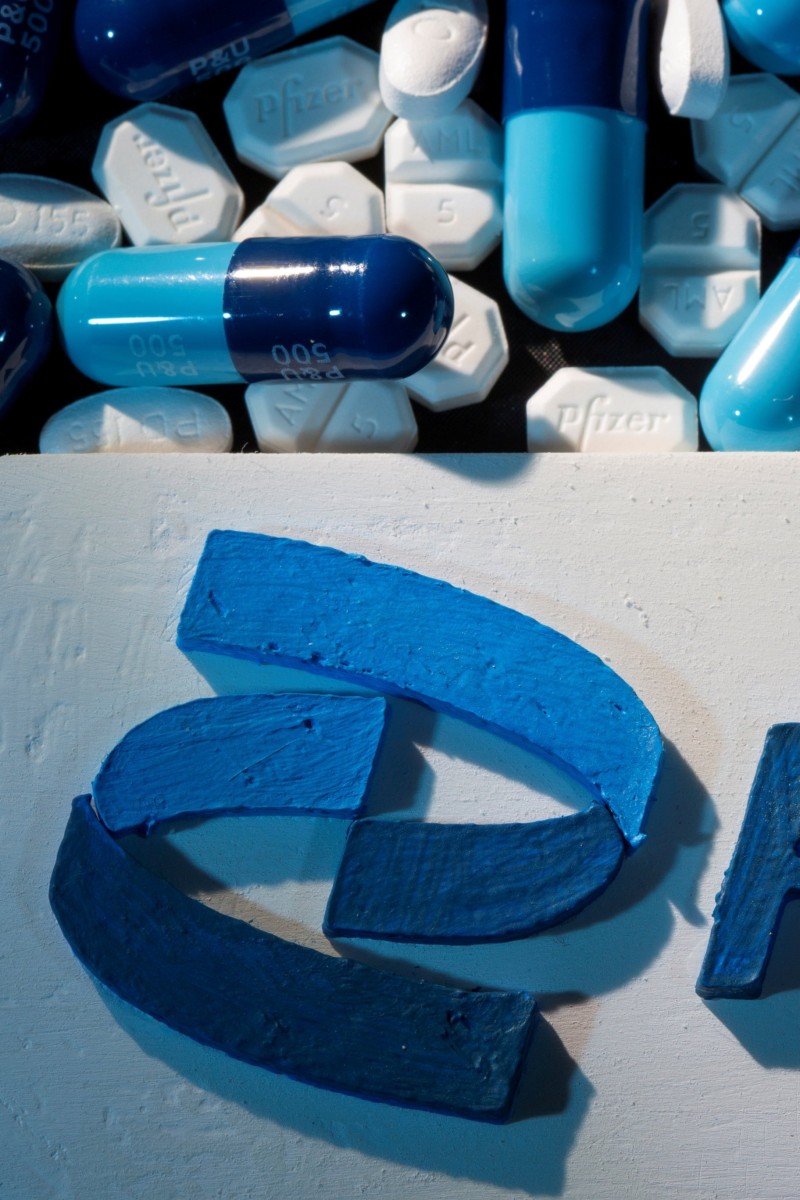
Pfizer says its new coronavirus pill is 89 per cent effective against severe disease
- Pfizer says that a clinical trial of its first pill to treat Covid-19 shows it is highly effective
- The drug called Paxlovid has achieved an 89 per cent reduction in risk of hospitalisation or death among adult patients who are at high risk of progressing to severe illness
 Pfzier says that its pill to terat Covid-19 is highly effective. Photo: Reuters
Pfzier says that its pill to terat Covid-19 is highly effective. Photo: ReutersPfizer said Friday that a clinical trial of its first pill to treat Covid-19 shows it is highly effective.
The drug called Paxlovid achieved an 89 per cent reduction in risk of hospitalisation or death among adult patients with Covid who are at high risk of progressing to severe illness, Pfizer said.
The results from this middle-to-late stage clinical trial are so good that Pfizer will stop recruiting new people for the trial, the company said.
Coronavirus: Chinese toddler tested for Covid-19 74 times since birth
It will submit the data to the Food and Drug Administration as soon as possible as part of its “rolling submission” for Emergency Use Authorization.
“Today’s news is a real game-changer in the global efforts to halt the devastation of this pandemic,” said Pfizer CEO Albert Bourla.
“These data suggest that our oral antiviral candidate, if approved or authorized by regulatory authorities, has the potential to save patients’ lives, reduce the severity of Covid-19 infections, and eliminate up to nine out of 10 hospitalizations.”
The main analysis of the data looked at numbers from 1,219 adults in North and South America, Europe, Africa and Asia.
Several companies are working on so-called oral antivirals, which would mimic what the drug Tamiflu does for influenza and prevent the disease from progressing to severe.
Pfizer started developing its drug in March 2020.
Coronavirus: Hong Kong to start offering Covid-19 booster shots
Other companies are also testing existing oral antivirals against Covid-19, but Pfizer’s is the first specifically designed against the coronavirus.
It is known as a “protease inhibitor” and has been shown in lab testing to jam up the virus’ replication machinery.
If it works in real life, it will likely only be effective at the early stages of infection.
By the time Covid progresses to severe disease, the virus has largely stopped replicating and patients suffer from an overactive immune response.